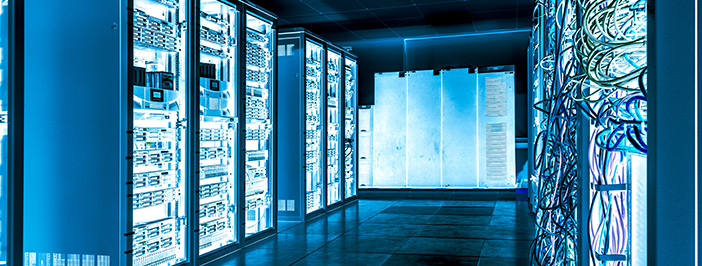Virtual Servers and 4 Reasons You May Want to Consider One
A server is essentially a computer that is designed to support many users at the same time. It’s built to reliably run multi-user applications such as email, messaging platforms, print servers, shared calendars, databases, and customer relationship management software.
Additionally, the setup of a server makes it easy for employees to share data and collaborate. It acts as a central repository for all of your documents, images, and files. Meaning, as long as someone has an internet connection and approved access to your network, they can get the information they need to get projects done.
There are both physical and virtual servers. A virtual server differs from a physical server in that it’s housed within a machine that supports multiple functions. For example, one machine could host multiple virtual servers, each with their own setup, OS and security measures.
Each has benefits and drawbacks. However, virtual servers are becoming more and more common. We’ve created a list of ways a virtual server can help your office.
Reduce Your Energy Footprint
You may not be a tree-hugging vegan who’s social calendar revolves around the next pollution protest. That doesn’t mean you can’t reap the environmentally friendly benefits of switching to a virtual server. In terms of energy costs, switching to a virtual server can save your business up to 80%.
How?
Servers use a lot of energy to stay operational and avoid overheating. Migrating energy-hungry physical servers over to virtual machines allows you to lower your monthly power and cooling costs.
Prepare for the Unexpected
A robust backup and disaster recovery plan is essential to get you back up and running when crisis strikes. Fires, power outages, floods, theft, and server failure happen. You don’t get to decide when.
Having a virtual server means your data is stored in a data center. Reputable data centers make it a point to keep multiple backups. That kind of redundancy really comes in handy in the event of a crisis, enabling you to get back to business as usual with minimal downtime.
Free Up Office Space
Virtual servers can dramatically reduce the amount of hardware you need onsite. That’s less square-footage devoted to equipment and less time spent maintaining that equipment—all without sacrificing functionality.
Not only that, but businesses save around 50% in costs by taking advantage of server virtualization. That’s money you can be spending on other projects to help grow your business.
Consider a Virtual Server
There are many benefits associated with making the switch to a virtual server. The resources, headaches, and office space you save are only a few.
If you have any questions about adopting a virtual server or want to know more about how they work, reach out. Our goal is to help your business succeed through technology, no matter what you ultimately decide is right for your organization.








